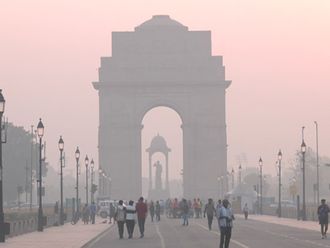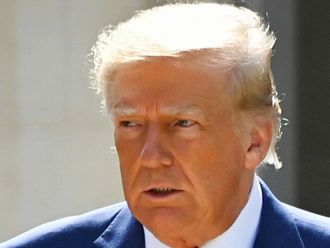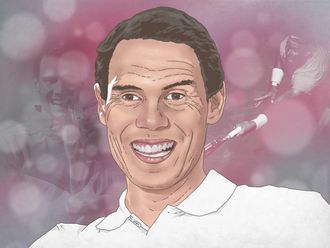Address the real problems
The editorial written in Gulf News accuses Human Rights Watch of making “the UAE its sole target”. This is apparently in response to our news release about the boycott by more than 130 artists of Guggenheim-Abu Dhabi over migrant worker exploitation (‘Avoiding Double Standards on Rights Abuses’, Gulf News, March 21).
In fact, a brief perusal of our website shows that the UAE is only a very small part of our work. Since the outbreak of protests across the Middle East and North Africa, Human Rights Watch has issued more than 100 news releases on the region, only two of them focusing on the UAE. Instead of these spurious charges, you would serve readers better by addressing the real problems that plague the UAE — [the] exploitation of migrant workers chief among them.
From Ms Sarah Leah Whitson
Director of Middle East Division, Human Rights Watch
New York, US
Libya needs help
It is appalling to see the recent events unfolding in Libya. What is worse is the criticism levied at the Western powers that they have done nothing to help and when they do start they are criticised for wanting to do something. Throughout this time I have been waiting for a unified response from the Arab League to see what they are going to do.
Please remember that Libya is a member of the Arab League, which was formed in 1945 with the main goal of drawing closer relations between member states. Its other purpose is to coordinate collaboration between these states to safeguard their independence and sovereignty, and to consider in a general way the affairs and interests of the Arab countries. It even has a mutual defence treaty to resolve disputes. However, when there are disputes nothing seems to happen. When will the Arab League help Libya with its problems?
From Mr Jonathan
Dubai
Full name withheld by request
A setback
I recently read with interest a report [in Weekend Review] on how stressful it is obtaining a visa to India. I am glad that this deplorable state of affairs has been highlighted, as far as visas for former Indian nationals are concerned. Many are unable or unwilling to visit their former motherland out of sheer disgust at the attitude of the bureaucrats.
While the Indian government professes at every given opportunity to be interested in maintaining links with the Indian diaspora — apparently, eyeing their money for investment in India — it has failed to produce a consistent visa policy with regard to former Indian nationals. In comparison, China treats its people of Chinese origin, regardless of where and when they were born, as having claim to Chinese citizenship.
The US government does not have any objections to India granting dual nationality to its former nationals. So, why doesn’t the Indian government do that? Instead, they fool around with such confusing terms as Person of Indian Origin (PIO) and Non-Resident Indian (NRI), entrance visas, and Citizenship Surrender Certificates.
Just like the logic of progressive deterioration, the Indian government’s logic is also on the decline as corrupt politicians take the reins of administration in their hands. I simply cannot believe that this is actually happening in a country that touts itself as the world’s biggest democracy.
From Ms Anjali Punjabi
US
Powerful treat
I am glad to see former Indian captain Kapil Dev presenting the Bhatia Awards (‘Kapil Dev will present Bhatia Awards’, Gulf News, March 23). I also applaud cricket enthusiast Shyam Bhatia for his efforts in the cricket world.
The UAE has not only demonstrated its infrastructure, but also made a name for itself in the sporting world, particularly in cricket. The UAE has also produced capable players. I think the winners are lucky to be receiving their awards from Kapil Dev.
From Ragavan Krishnamachary
India








